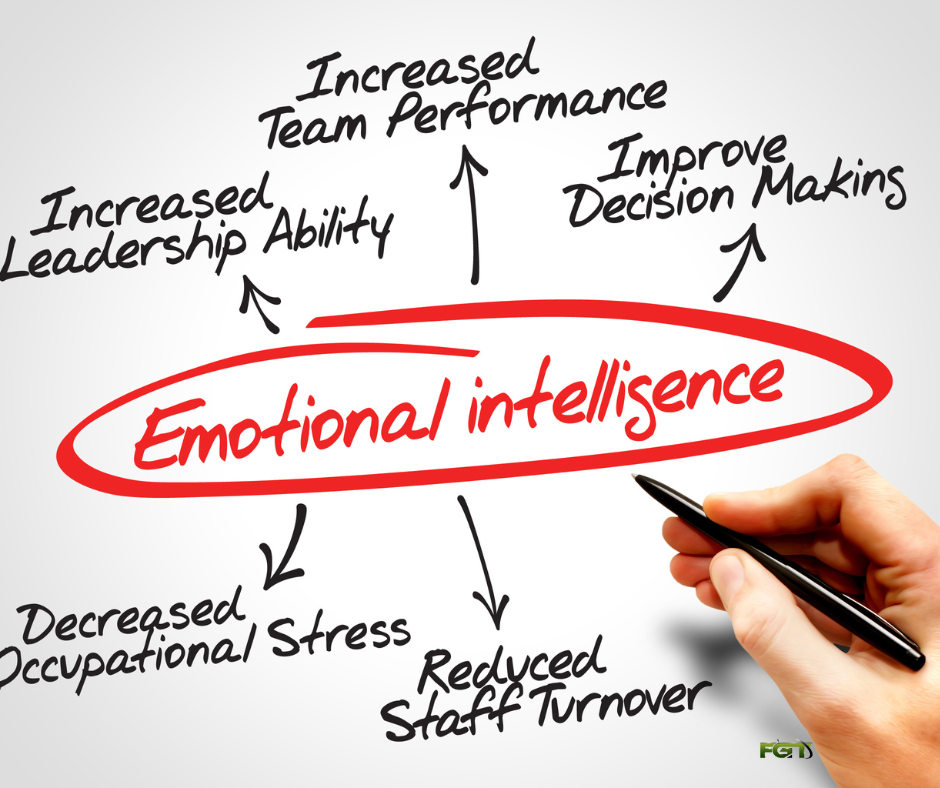Emotional Intelligence in the Workplace
If you have attended one of our leadership training workshops, you will know that Patrick Lencioni features prominently in some of the book resources I bring into the room.
One of those books is The Ideal Team Player.
In the book, Lencioni talks about the three main attributes demonstrated by the ideal team player. If you have spent time on a team involving humans, you will recognize these instantly.
One: they are humble. Two: they are hungry to learn more. Three: they have sufficient emotional intelligence to understand their impact on other team members when they are there.
This month, I have decided to focus on that third attribute, emotional intelligence.
Emotional intelligence is seen and experienced in abundance in many workplaces. Where emotional intelligence is lacking, the entire workplace suffers.
The Tale-Tell Sign of a Great Supervisor or Manager
Their ability to emotionally understand, connect with, and inspire their teams sets exceptional supervisors and managers apart. They empower people to navigate the complexities of human dynamics with finesse and effectiveness.
Emotional intelligence (EI) is a critical skill set for leaders who seek authenticity, empathy, and effectiveness.
By prioritizing self-awareness, self-regulation, social awareness, and relationship management, you can cultivate solid, resilient teams poised for success.
What does emotional intelligence look like, and how do leaders model and encourage others to cultivate EI?
We Begin with Self-Awareness
Effective leadership begins with self-awareness – recognizing and understanding one’s emotions, strengths, weaknesses, and triggers.
Self-aware managers are conscious of how their emotions influence decisions and interactions, enabling them to lead authentically and with integrity.
By understanding their strengths and limitations, self-aware managers can leverage their strengths to inspire others and proactively address areas for growth.
Self-awareness also allows you to recognize the impact of your behavior on your team members, which fosters an environment of trust and open communication. Does this sound familiar?
Through introspection and reflection, you can continuously refine your self-awareness, ensuring that your leadership style aligns with your organization’s values and objectives.
We begin with self-awareness; what’s next?
Self-Regulation
While experiencing emotions is natural, effective managers possess the ability to regulate their emotions and responses, especially in high-pressure situations.
Self-regulation involves staying calm under stress, managing impulses, and refraining from reactive behavior.
By maintaining composure and resilience, managers can lead by example, inspiring team confidence and stability.
Handling Negative Emotions
Here is a great article about handling negative emotions in a way that benefits your team.
Mindfulness techniques like deep breathing and visualization can help managers regulate their emotions and make thoughtful decisions, even in challenging circumstances.
( TIP: This is my favorite TED Talk on the power of breathing.)
Additionally, fostering a culture of psychological safety within the team encourages open dialogue and constructive feedback, further supporting self-regulation and emotional well-being.
Social Awareness
A key aspect of emotional intelligence is social awareness, which is the ability to empathize with others, understand their perspectives, and navigate interpersonal dynamics effectively.
Socially aware managers are attuned to the emotions and needs of their team members, allowing them to provide support, guidance, and recognition where needed.
By practicing active listening and paying attention to nonverbal cues, managers can demonstrate empathy and build trust within their teams. We would love to share some highly effective active listening exercises with you. Please reach out to our office if you are interested.
Moreover, social awareness enables managers to anticipate potential conflicts or challenges and address them proactively, fostering a collaborative and inclusive work environment.
And finally, let’s look at
Relationship Management
Building and maintaining positive relationships is essential for effective leadership.
Relationship management involves leveraging emotional intelligence to cultivate strong connections with team members, peers, and stakeholders.
By fostering trust, communication, and mutual respect, managers can inspire loyalty and commitment within their teams, driving performance and productivity.
Effective relationship management also entails conflict resolution and negotiation skills, allowing managers to address disagreements constructively and find mutually beneficial solutions.
Empower Your Workplace
By prioritizing the well-being and development of their team members, managers can create a supportive and empowering work culture where individuals thrive and contribute their best efforts.
The development of emotional intelligence enhances individual leadership capability and fosters a positive and inclusive work environment where everyone can thrive and reach their full potential.
Now, that is something everyone should get excited about!
What to Read
- Emotional Intelligence: Why it can matter more than IQ: by Daniel Goleman
- Emotional Intelligence for the modern Leader: A guide to cultivating effective leadership and Organizations: by Christopher D. Connors
- Emotional Intelligence: 21 Most Effective Tips and Tricks on Self Awareness, Controlling Your Emotions, and Improving Your EQ: by Ryan James
- Emotional Intelligence 2.0: by Travis Bradberry, Jean Greaves with the forward by Patrick Lencioni






